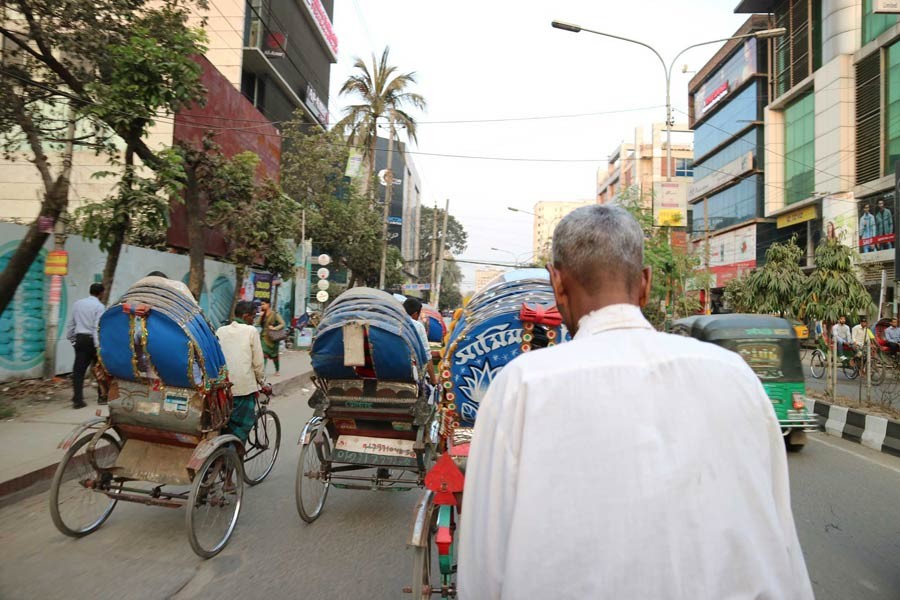The announcement by a special committee formed by the Dhaka Transport Coordination Authority (DTCA) last Wednesday that rickshaws would be banned from next Sunday from three arterial roads in Dhaka city has not come as a surprise. The committee was formed to find ways to remove illegal vehicles from roads and free footpaths from grabbers with the ostensible aims to ease traffic congestion. This is the first step in the special committee's long and difficult list of tasks. People living in the capital know only too well how they lose time unproductively on roads at a disproportionate rate to distance because of traffic jams. Various studies conducted by experts have all drawn the conclusion that a large part of man- hour wasted due to traffic jam impinged on the economy.
As has been announced, this first of the various steps will come under regular review in the committee's future meetings. Importantly, it has been stressed that people's suffering from such a closure will be redressed. Of the three roads, two are very important and have long stretches, one from Gabtoli to Azimpur, the other from Kuril to Saydabad via Rampura-Khilgaon; and the third one from Science Laboratory to Shahbag cross-section, although smaller in length bears significance for mobility in an important traffic hub. Not only the inhabitants of the capital city, but also those who visit it for various purposes from across the country are familiar with the importance of these three roads; and the choking congestion in them has had severe constraining effects on time, money and ease of movement. However, a lot of goodwill be needed to see the scheme through. As is well-known rickshaws are an integral part of movement in the metropolis; and whenever any similar action was proposed in the past, politics and economics came together to thwart it. Besides, a large swathe of livelihood also thrives around the whole business of rickshaws -- making and painting them, managing route permits and finally handing them over to the puller. The committee's observation that many of the rickshaws that ply the city streets do so without valid licence is known to all but tragically no brake was applied on the malpractice in time. The assertion that alternatives will be made for employment is a talk that requires vindication. A gnawing dimension to such unregulated proliferation of rickshaws is underlined in a recent study which found that a sizeable section of the pullers are diseased. This is primarily because of malnutrition and exhaustion; but lack of medical care only aggravated their condition.
This apparently inhuman profession should have gone a long time ago. A mixture of realities made it stay on. Certain posh areas of the city introduced a less callous version through proper licensing and limited it to inner streets only. However, this is the first time a bold step has been taken to ban rickshaws on some extensive swathes of roads. Citizens who send their children to schools on rickshaws only will find the latest move difficult to cope with. School buses have not yet become an easily available alternative. Improvement in overall bus service has been assured, but would need time. The pledge that options will be made available for mobility in the absence of rickshaws must be fulfilled. As the special committee sits in its next meeting soon, it can elaborate on the alternatives to rickshaws in clear terms including envisaging rehabilitation measures for the sake of the affected.


